BASIC PROPORTIONALITY THEOREM PRACTICE QUESTIONS WORKSHEET
Subscribe to our ▶️ YouTube channel 🔴 for the latest videos, updates, and tips.
(1) In ΔABC, D and E are points on the sides AB and AC respectively such that DE ∥ BC
(i) If AD/DB = 3/4 and AC = 15 cm find AE. Solution
(ii) If AD = 8x −7 , DB = 5x −3 , AE = 4x −3 and EC = 3x −1 find the value of x. Solution
(2) ABCD is a trapezium in which AB || DC and P,Q are points on AD and BC respectively, such that PQ || DC if PD = 18 cm, BQ = 35 cm and QC = 15 cm, find AD
(3) In ΔABC, D and E are points on the sides AB and AC respectively. For each of the following cases show that DE ||BC
(i) AB = 12 cm, AD = 8 cm, AE = 12 cm and AC = 18 cm.
(ii) AB = 5.6 cm, AD = 1.4 cm, AC = 7.2 cm and AE = 1.8 cm.
(4) In fig. if PQ || BC and PR || CD prove that
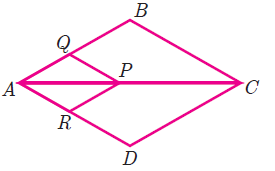
(i) AR/RD = AQ/AB
(ii) QB/AQ = DR/AR Solution
(5) Rhombus PQRB is inscribed in ΔABC such that ÐB is one of its angle. P, Q and R lie on AB, AC and BC respectively. If AB = 12 cm and BC = 6 cm, find the sides PQ, RB of the rhombus
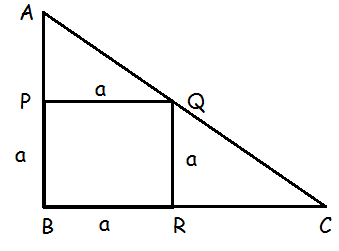
(6) In trapezium ABCD, AB || DC , E and F are points on non-parallel sides AD and BC respectively, such that EF || AB . Show that AE/ED = BF/FC
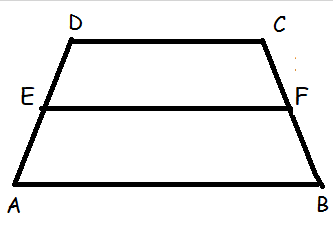
(7) In figure DE || BC and CD || EF. Prove that AD2 = AB×AF
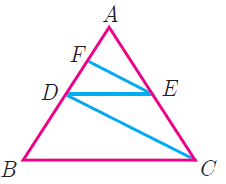
(8) In ΔABC, AD is the bisector of <A meeting side BC at D, if AB = 10 cm, AC = 14 cm and BC = 6 cm, find BD and DC
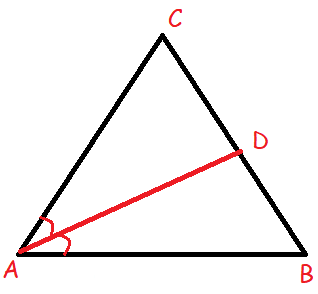
(9) Check whether AD is bisector of <A of ΔABC in each of the following
(i) AB = 5 cm, AC = 10 cm, BD = 1.5 cm and CD = 3.5 cm.
(ii) AB = 4 cm, AC = 6 cm, BD = 1.6 cm and CD = 2.4 cm.
(10) In figure <QPR = 90° , PS is its bisector. If ST ⊥ PR, prove that ST × (PQ + PR) = PQ × PR.
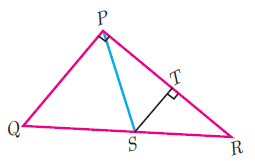
(11) ABCD is a quadrilateral in which AB=AD, the bisector of <BAC and <CAD intersect the sides BC and CD at the points E and F respectively. Prove that EF BD .
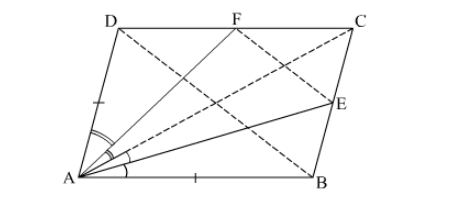
Subscribe to our ▶️ YouTube channel 🔴 for the latest videos, updates, and tips.
Kindly mail your feedback to v4formath@gmail.com
We always appreciate your feedback.
About Us | Contact Us | Privacy Policy
©All rights reserved. onlinemath4all.com

Recent Articles
-
10 Hard SAT Math Questions (Part - 40)
Dec 25, 25 08:30 AM
10 Hard SAT Math Questions (Part - 40) -
10 Hard SAT Math Questions (Part - 41)
Dec 24, 25 07:58 PM
10 Hard SAT Math Questions (Part - 41) -
ASTC Formula in Trigonometry
Dec 23, 25 11:34 PM
ASTC Formula in Trigonometry - Concepts - Examples and Solved Problems


